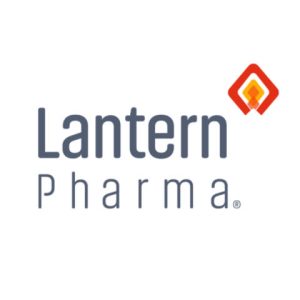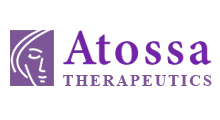
As per reports, JPMorgan Chase & Co has appointed Jay Hofmann and Ben Carpenter as co-heads of mergers and acquisitions advisory for North America, as revealed in a memo reviewed by Bloomberg News.
These two bankers will report to Anu Aiyengar, who serves as the Global Head of M&A. They take over from Marco Caggiano, who left the firm during the summer to join Morgan Stanley.
Jay Hofmann, aged 50, has been an M&A banker at the New York-based bank for over twenty years and most recently shared leadership of the technology M&A division. He will remain based in New York. On the other hand, Ben Carpenter, aged 47, has been co-leading JPMorgan’s health-care M&A sector from San Francisco since he joined the bank in 2021, following a 15-year tenure at Citigroup Inc. It’s noteworthy that Carpenter initiated his career at JPMorgan.
JPMorgan Chase & Co (JPM) is a global financial service leader in investment banking, financial services for consumers and businesses, financial transaction processing, asset management, and commercial banking. To learn more about JPMorgan Chase & Co. (JPM) and to continue to track its progress please visit the Vista Partners JPMorgan Chase & Co. Coverage Page.

Stay Informed! Stay Competitive! Please join us at Vista Partners, receive our FREE email updates throughout the week, and view our exclusive content and research.

DID YOU KNOW?…

Lantern Pharma (LTRN) is an Artificial Intelligence (AI) firm that is transforming the cost, pace, and timeline of oncology drug discovery and development and specifically is developing targeted and transformative cancer therapies using its proprietary RADR® AI and machine learning (“ML”) platform with multiple clinical stage drug programs.

On August 31, Lantern announced that it will present positive data highlighting the anti-tumor potency of its drug candidate LP-284 for non-Hodgkin’s lymphoma (NHL) at the Society of Hematologic Oncology (SOHO) Eleventh Annual Meeting occurring on Sept. 6 – 9, 2023, at the George R. Brown Convention Center in Houston, Texas. LP-284 is a small molecule with a synthetically lethal mechanism of action that preferentially damages cancer cells.. Lantern is developing LP-284 for the treatment of relapsed or refractory NHL, including Mantle Cell Lymphoma and Double Hit Lymphomas. Lantern expects to initiate Phase 1 clinical trials for LP-284 during Q4 of 2023. Lantern’s LP-284 program has been accelerated and de-risked using AI insights and biological modeling powered by RADR®. Lantern has been able to advance LP-284 from initial RADR® insights regarding anti-cancer activity and potential mechanisms of action in hematological cancers, to selection of specific subtypes of lymphomas with superior response, to late-stage IND enabling studies, and initial design of first in human clinical trials in less than two years.
Details of the poster presentation are listed below and can be found on the SOHO website. A full version of the poster will be available on Lantern’s website on September 11, 2023.
Title: LP-284 – Targeting Homologous Recombination Deficiencies in B-Cell Non-Hodgkin’s Lymphomas with the Novel Anti-Tumor Small Molecule LP-284
Date and Time: September 6, 2023, 6:00pm CT
Poster Number: ABCL-180
Presenter: Jianli Zhou, Ph.D., Lantern Pharma
On August 28, Lantern announced a substantial increase in the power and capabilities of RADR® focused on improving the drug development process for immune checkpoint inhibitors (ICIs). These capabilities are expected to address the multiple challenges facing the increased usage of ICIs in cancer therapy. Since gaining regulatory approval in 2011, ICIs have improved the lives of tens of thousands of cancer patients as either monotherapies, and more recently, in combination regimens with other therapies. The success of ICIs has resulted in multiple competing ICI molecules, often from the same class, in overlapping cancer indications. Additionally, recent clinical trial failures reveal headwinds to the desired expansion of ICIs for a broader range of cancers and patient groups. Currently, there are over 5,200 ongoing clinical trials involving ICIs, many of these lacking adequate biomarker strategies or guidance from AI enabled approaches to optimize the selection of patient responder populations. In a recent study presented at the 2023 ASCO meeting, RADR’s® algorithms demonstrated an 88% accuracy rate in predicting which melanoma (skin cancer) patients exhibiting resistance to anti-PD1 therapy will respond to Elraglusib, a GSK-3ϐ inhibitor being developed by Actuate Therapeutics, which previously entered into a multi-year research and development collaboration with Lantern Pharma to leverage the RADR® platform. The continued growth of ICIs, especially the approval of new ICIs, will be predicated on: 1) efficiently identifying new biomarker or molecular signatures for optimal patient selection, stratification, and management, and 2) rapidly developing combination regimens that overcome treatment challenges facing current and emerging solid and hematological cancer indications. Lantern’s latest RADR® AI developments will focus on addressing these challenges by building automated and highly scalable computational analytics to generate clinically relevant tumor-specific and tumor-agnostic molecular signatures to guide the identification and development of drug combinations that can prolong ICI durability of response and improve patient survival. These developments will leverage RADR® to uncover molecular drivers of response and resistance influencing ICI treatment outcomes by coupling pathway and network-based analytics with the simultaneous screening of millions of targets from complex clinical and biological data sets. This capability will be powered by tens of billions of new data points from immunotherapy and checkpoint inhibitor studies that Lantern has begun to add to its RADR® platform.
Lantern plans to deploy its new RADR® ICI predictive module with biopharma partners and to identify potential combinatorial strategies for LP-184 and LP-284, the first of Lantern’s drug candidates developed internally with the assistance of the RADR® AI platform. The ICI market is projected to reach $67.8 billion in annual sales by 2025, according to GlobalData, with future growth dependent on approvals from precision-based approaches guiding the development and positioning of new combination therapies.

Panna Sharma is the President, CEO, and Board Member of Lantern Pharma Inc.
“We are expanding the functionality of our RADR® AI platform in ways that aim to solve the very meaningful and important challenges of future checkpoint inhibitor development. We initially began this effort by identifying meaningful combinations with checkpoint inhibitors that might be the most effective with our LP-184 and LP-284 drug candidates. Our latest RADR® advancements add a new level of speed, scalability, and precision in the identification of rational combination therapies that have the potential to overcome known shortcomings of ICIs. The current clinical trial landscape of ICIs is at a critical juncture, with dozens of new indications being pursued. Unfortunately, the majority of these trials are unlikely to succeed unless the right cancer subtypes are pinpointed and unless the right combinations with other molecules are pursued. ICIs have the potential to benefit from the ability to predict which patient groups and which cancer subtypes will respond to the drug or drug combination, which is a fundamental part of our AI platform, RADR®, as we recently demonstrated in our collaborative 2023 ASCO poster,” stated Panna Sharma, Lantern’s CEO and President.





















































































































































































